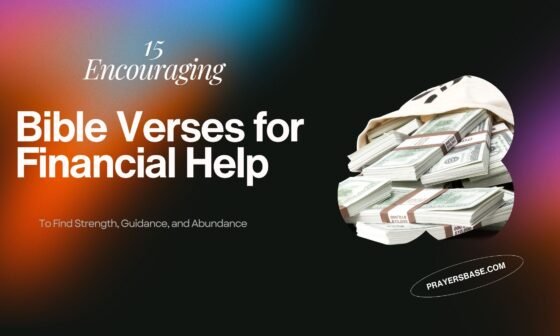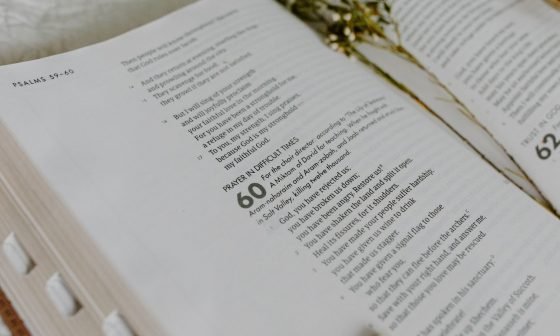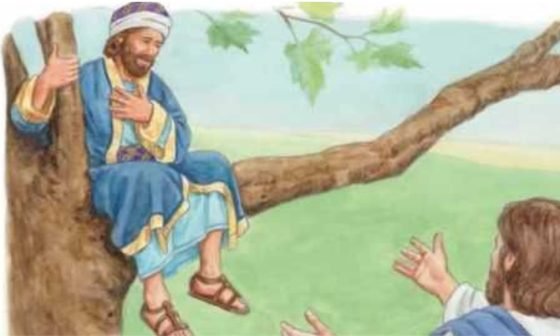King Herod the Great, a figure both reviled and remembered for his complex legacy, stands as one of history’s most notorious rulers. His reign over Judea, marked by grand architectural feats and brutal political maneuvers, offers a vivid portrayal of the perils of power.
Appointed by the Roman Senate and celebrated for his ambitious building projects, including the expansion of the Second Temple in Jerusalem, Herod’s name also evokes memories of tyranny, paranoia, and oppression.
The biblical narratives and historical accounts of his rule provide a fertile ground for extracting timeless lessons on leadership, morality, and the consequences of absolute power. This exploration delves into eleven critical lessons from King Herod in the bible, shedding light on the enduring wisdom embedded in his story.
King Herod In The Bible
1. Lesson 1: The Perils of Ambition
Herod’s ascent to power was fueled by an insatiable ambition. Appointed king of Judea by the Roman Senate, he maneuvered through political intricacies to secure his throne. His path to power was littered with alliances, betrayals, and ruthless actions designed to consolidate his authority. Herod’s ambition was not merely a desire for power but a consuming drive that overshadowed all other aspects of his life.
“For what shall it profit a man, if he shall gain the whole world, and lose his own soul?” – Mark 8:36
Herod’s relentless pursuit of power led to paranoia and cruelty, demonstrating that unchecked ambition can corrupt even the most powerful leaders.
His actions reveal a man willing to sacrifice moral integrity and personal relationships to achieve his goals. The most poignant example of this is his treatment of his family. Fearful of threats to his throne, Herod did not hesitate to eliminate perceived rivals, including his wife Mariamne and several of his sons.
Ambition, while a powerful motivator, must be tempered with ethics and humility. The pursuit of power for its own sake often leads to a moral downfall. Herod’s life serves as a cautionary tale that reminds us of the dangers of letting ambition override our principles.
His story echoes the biblical admonition that gaining the world at the cost of one’s soul is a hollow victory. Herod’s ultimate legacy is not just one of political dominance but also of the personal destruction wrought by his unbridled ambition.
2. Lesson 2: The Dangers of Paranoia
Herod’s reign was marred by paranoia. His fear of losing power led him to commit heinous acts, including the massacre of infants in Bethlehem, as recorded in Matthew 2:16-18. This event, known as the Massacre of the Innocents, underscores the destructive power of fear and suspicion. Herod’s paranoia was not an isolated characteristic but a pervasive element that influenced many of his decisions.
“The wicked flee when no man pursueth: but the righteous are bold as a lion.” – Proverbs 28:1
Paranoia erodes trust and fosters an environment of fear and oppression. Herod’s inability to trust those around him ultimately isolated him, leading to a reign characterized by terror and bloodshed. His fear of insurrection and betrayal led him to preemptively strike against perceived threats, often with extreme measures. This atmosphere of distrust created a cycle of fear and violence that perpetuated his tyranny.
The consequences of Herod’s paranoia were far-reaching. It not only led to the loss of innocent lives but also destabilized the region, as people lived under constant threat of arbitrary violence.
Herod’s actions serve as a stark reminder that leadership driven by fear is inherently unstable and destructive. The lesson here is clear: paranoia and suspicion can destroy the very foundations of leadership, replacing trust and cooperation with fear and hostility.
3. Lesson 3: The Cost of Ruthlessness
Herod’s ruthlessness extended beyond political rivals to his own family. He ordered the execution of his wife Mariamne and several of his sons, suspecting them of plotting against him. This brutality highlights the corrosive effect of power and the human cost of maintaining it through fear and violence. Herod’s ruthless actions were not mere political maneuvers but profound moral failings that alienated him from those closest to him.
“But if ye bite and devour one another, take heed that ye be not consumed one of another.” – Galatians 5:15
Leadership devoid of compassion and guided by cruelty ultimately destroys both the ruler and the ruled. Herod’s legacy serves as a stark reminder of the moral and human toll exacted by ruthless governance. His willingness to sacrifice familial bonds and loyalty for the sake of maintaining power reveals a profound tragedy: the isolation and fear that accompany a life ruled by cruelty.
Herod’s reign exemplifies the destructive potential of ruthlessness. His actions alienated allies, fostered rebellion, and left a legacy of mistrust and animosity.
The cost of his ruthlessness was not just measured in lives lost but in the erosion of social cohesion and the perpetuation of a culture of fear. Herod’s story teaches us that true leadership requires a balance of strength and compassion and that cruelty ultimately leads to the downfall of both the ruler and their realm.
4. Lesson 4: The Illusion of Security
Despite his efforts to secure his throne, Herod’s reign was fraught with insecurity. His constant fear of insurrection and betrayal led to a series of preemptive strikes against those he perceived as threats. This obsessive quest for security only deepened his insecurity. Herod’s life reveals the paradox that the more one seeks to control and secure their position through fear and violence, the more unstable that position becomes.
“Except the Lord build the house, they labour in vain that build it: except the Lord keep the city, the watchman waketh but in vain.” – Psalm 127:1
True security cannot be achieved through force and fear alone. Herod’s life teaches us that trust and righteousness are essential foundations for lasting peace and stability. His reign, marked by constant vigilance and preemptive violence, failed to create the security he so desperately sought. Instead, it bred a cycle of fear and retribution that perpetuated instability.
Herod’s story underscores the futility of seeking security through oppressive means. His actions did not bring lasting peace but rather sustained conflict and fear.
The lesson here is profound: security built on trust, justice, and righteousness is far more enduring than that constructed through fear and force. Herod’s reign serves as a cautionary tale about the illusion of security through dominance, reminding us that true stability arises from ethical and just leadership.
5. Lesson 5: The Impact of Legacy
Herod is remembered as much for his architectural achievements as for his cruelty. His construction projects, including the expansion of the Second Temple in Jerusalem, were remarkable. Yet, these accomplishments are overshadowed by his tyrannical rule. Herod’s legacy is a complex blend of grand achievements and brutal actions, reflecting the dual nature of his reign.
“The memory of the just is blessed: but the name of the wicked shall rot.” – Proverbs 10:7
A leader’s legacy is shaped not only by their achievements but also by their character and actions. Herod’s mixed legacy serves as a cautionary tale about the enduring impact of one’s moral choices. His architectural contributions, while significant, cannot erase the memory of his tyranny and cruelty. The buildings he constructed stand as testaments to his ambition and capability, but the stories of his brutality linger in the collective memory.
Herod’s life reminds us that true greatness is measured not only by tangible achievements but also by the integrity and morality of one’s actions. His reign, marked by significant contributions to infrastructure and culture, is irrevocably tainted by his moral failings. The lesson here is clear: a lasting legacy is built on a foundation of ethical leadership and humane treatment of others. Herod’s story serves as a powerful reminder that our actions, more than our achievements, define how we are remembered.
6. Lesson 6: The Role of Divine Providence
Herod’s story is deeply interwoven with themes of divine providence. His actions, though intended to thwart God’s plans, ultimately fulfilled prophetic scriptures, illustrating the overarching sovereignty of divine will. Herod’s notorious massacre in Bethlehem, known as the Massacre of the Innocents, serves as a poignant example. This brutal event fulfilled Jeremiah’s prophecy about Rachel weeping for her children, as recorded in Matthew 2:17-18.
“There are many devices in a man’s heart; nevertheless the counsel of the Lord, that shall stand.” – Proverbs 19:21
This narrative underscores the belief that God’s purposes prevail despite human intentions. Herod’s attempts to control his destiny and defy divine will only reinforce the sovereignty of God’s plan. His efforts to eliminate the prophesied King of the Jews inadvertently confirmed the truth of the prophecies he sought to subvert.
Herod’s life reminds us that divine providence operates beyond human understanding and control. His reign, marked by fear and violence, became an instrument through which prophetic scriptures were realized. This paradox highlights a profound theological truth: human actions, no matter how malevolent, cannot thwart the ultimate purposes of God. Herod’s story teaches us that God’s plan is immutable and will unfold regardless of human opposition, reinforcing the belief in the enduring and unassailable nature of divine will.
7. Lesson 7: The Consequences of Oppression
Herod’s oppressive rule left an indelible mark on Judea. His heavy taxation and harsh policies created widespread resentment and suffering among his subjects. This illustrates the destructive impact of oppressive leadership on a nation’s social fabric. Herod’s economic policies, driven by his monumental building projects, placed enormous financial burdens on the populace, exacerbating their plight.
“He that oppresseth the poor reproacheth his Maker: but he that honoureth him hath mercy on the poor.” – Proverbs 14:31
Oppression alienates and dehumanizes, leading to societal unrest and upheaval. Herod’s reign is a testament to the long-term damage inflicted by tyrannical governance. His methods of maintaining control, through fear and coercion, created an environment of pervasive insecurity and discontent.
The social consequences of Herod’s oppressive rule were profound. His policies not only impoverished the people but also eroded the trust between the ruler and the ruled. The discontent fomented under his reign set the stage for future conflicts and rebellions, highlighting the unsustainable nature of oppressive governance. Herod’s story serves as a cautionary tale about the corrosive effects of tyranny and the enduring human cost of oppression.
8. Lesson 8: The Fallacy of Earthly Power
Herod wielded considerable earthly power, yet his life was riddled with turmoil and conflict. His quest for dominance and control ultimately led to personal and political instability. Herod’s reign, though marked by significant achievements, was characterized by constant threats to his authority and internal strife.
“Put not your trust in princes, nor in the son of man, in whom there is no help.” – Psalm 146:3
This lesson emphasizes the transient nature of earthly power and the futility of placing ultimate trust in human authority. True power and security lie beyond the temporal realm. Herod’s relentless pursuit of control revealed the inherent instability of power based solely on human strength and manipulation.
Herod’s life illustrates the fallacy of seeking ultimate security and significance through earthly power. Despite his formidable political and military acumen, his reign was perpetually shadowed by fear and conflict.
The transient nature of his power, underscored by the persistent threats he faced, teaches us that true and lasting power is found not in human authority but in alignment with divine principles. Herod’s story reminds us of the limitations of human power and the enduring truth that ultimate security is rooted in spiritual, not temporal, foundations.
9. Lesson 9: The Importance of Justice
Herod’s reign lacked justice. His arbitrary executions and brutal tactics were devoid of fairness and righteousness, fostering an environment of fear rather than justice. Herod’s methods of maintaining power often involved bypassing legal and ethical norms, leading to widespread injustice.
“But let judgment run down as waters, and righteousness as a mighty stream.” – Amos 5:24
Justice is a cornerstone of righteous leadership. Herod’s failure to uphold justice is a stark reminder of the chaos and suffering that ensue when justice is disregarded. His actions created a culture of impunity, where the powerful could act without accountability, leading to widespread suffering and disillusionment.
The absence of justice during Herod’s reign had profound implications for his legacy and the well-being of his subjects. His arbitrary rule undermined the social contract and eroded the moral fabric of society.
The resulting environment of fear and oppression stifled potential and perpetuated injustice. Herod’s story highlights the essential role of justice in leadership and the moral imperative for leaders to uphold fairness and righteousness. It serves as a timeless reminder that justice is integral to the health and stability of any society.
10. Lesson 10: The Influence of Fear
Herod’s rule was significantly influenced by fear—both his own and that which he instilled in others. His fear of losing power led to extreme measures, and the fear he imposed stifled dissent but also bred deep-seated hatred. Herod’s reign was characterized by a pervasive atmosphere of fear, where suspicion and terror were governance tools.
“There is no fear in love; but perfect love casteth out fear: because fear hath torment. He that feareth is not made perfect in love.” – 1 John 4:18
Fear is a poor foundation for leadership. It may suppress opposition temporarily but cannot sustain a stable and harmonious rule. Herod’s reliance on fear ultimately undermined his authority. His fear among his subjects created a volatile environment, prone to rebellion and unrest.
Herod’s use of fear as a tool of control had significant repercussions. While it temporarily subdued potential rivals and dissent, it also cultivated a culture of mistrust and hostility.
The long-term effects of ruling through fear included deep social divisions and a lack of genuine loyalty. Herod’s story demonstrates that fear-based leadership is inherently unstable and ultimately self-defeating. It highlights the necessity of leading with principles of love and justice to foster a truly stable and harmonious society.
11. Lesson 11: The Call for Repentance
Despite his numerous transgressions, Herod had opportunities for repentance. His interactions with John the Baptist and other religious figures could have led him to change his ways. However, he chose to persist in his tyranny. Herod’s encounters with prophetic voices calling for repentance represent moments where he could have turned towards a different path.
“The Lord is not slack concerning his promise, as some men count slackness; but is longsuffering to us-ward, not willing that any should perish, but that all should come to repentance.” – 2 Peter 3:9
Herod’s life demonstrates the importance of repentance and the tragic consequences of a hardened heart. Even the most ruthless rulers have the potential for redemption if they choose to turn towards righteousness. Herod’s refusal to heed the calls for repentance led to his enduring infamy and the perpetuation of his tyrannical legacy.
Conclusion
King Herod’s life and reign serve as a multifaceted study in the dynamics of power, ambition, and morality. From his ruthless ascent to the throne to his paranoid and oppressive governance, Herod’s actions offer stark warnings about the dangers of unchecked ambition, the corrosive effects of fear and cruelty, and the futility of seeking security through domination.
His story, interwoven with themes of divine providence and the ultimate triumph of justice, underscores the transient nature of earthly power and the lasting impact of ethical leadership.
Herod’s legacy, marked by both monumental achievements and profound moral failings, reminds us that true greatness lies not in temporal authority but in the righteous and compassionate exercise of power.







